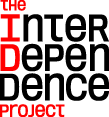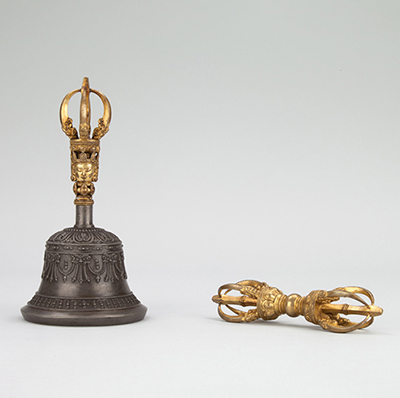
A meditation session led by Rebecca Li.
For centuries Himalayan practitioners have used meditation to quiet the mind, open the heart, calm the nervous system, and increase focus. Mindfulness meditation offers both a refuge from the world around us, and an opportunity to engage with it more consciously.
Whether you’re a beginner, a dabbler, or a skilled meditator seeking the company of others, join expert teachers in a forty-five-minute weekly program. Each session is inspired by a different work of art from the Rubin Museum’s collection. Designed to fit into your lunch break, the program includes an opening talk, a twenty-minute sitting session, and a closing discussion. Chairs will be provided.
This program is supported in part by the Hemera Foundation with thanks to our presenting partners Sharon Salzberg, the Interdependence Project, and Parabola Magazine.


RELATED ARTWORK

Theme: Emptiness
How do you visualize emptiness? The vajra and bell””the two most common ritual implements used in Tibetan Buddhism””are important symbols of liberation. The vajra, a type of scepter, represents compassion while the bell represents wisdom about the true, empty nature of reality. When the sound of the bell dissipates, it reminds practitioners of the impermanence of all phenomena.
About the Speaker
Rebecca Li is a Dharma heir in the lineage of Chan Master Sheng Yen and started practicing meditation in 1995. She began her teacher’s training with Master Sheng Yen in 1999 to become a Dharma and meditation instructor. She then trained with Simon Child to lead intensive retreats and received full Dharma transmission in 2016. Rebecca currently teaches meditation and Dharma classes, gives public lectures, and leads retreats in North America and in the UK. Her talks and writings can be found at www.rebeccali.org.
